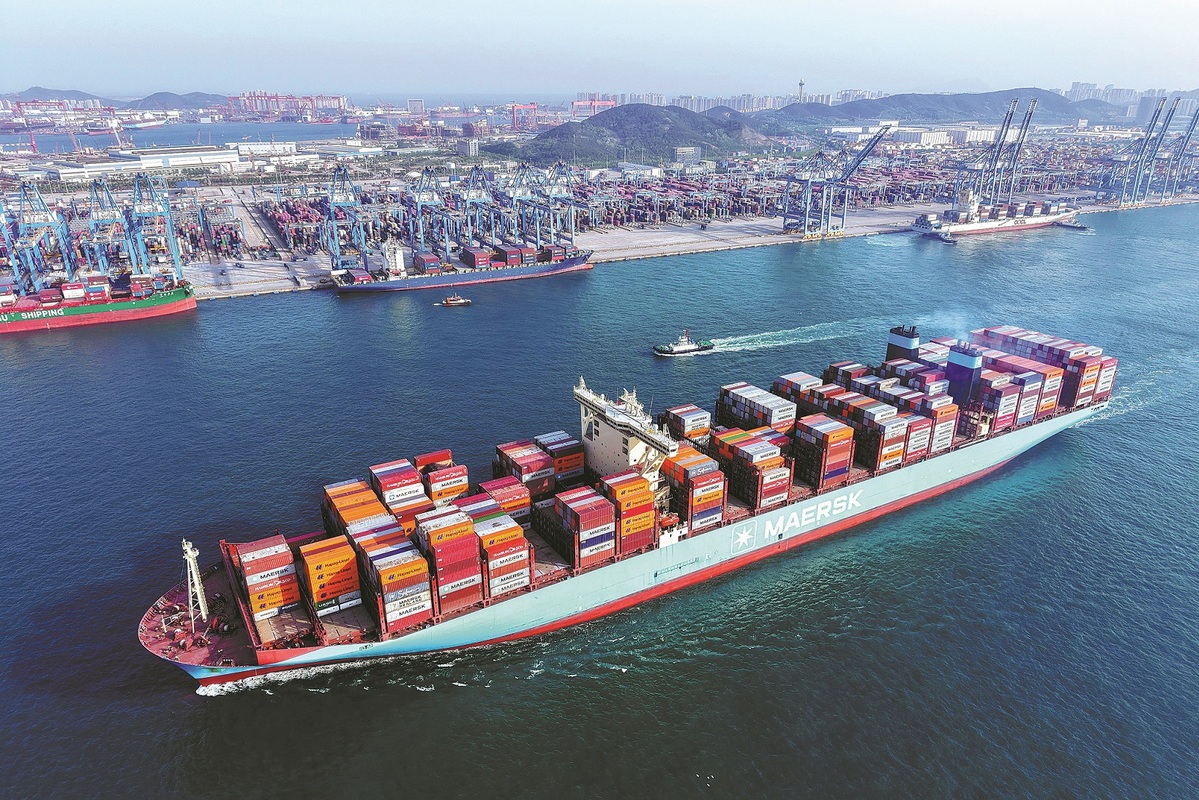China's growth brings opportunities, not a shock


While urging US support for China's WTO accession in 2000, Nobel laureate economist Robert Solow said: "It's better for us when our trading partners are rich than when our trading partners are poor; and for China to keep growing in economic terms is an advantage for us." A quarter-century later, it might be wise for those mongering a "China shock" narrative to heed his words.
The "China shock" narrative is rooted in an unfounded tendency to blame China for the loss of American jobs. It ignores the United States' own economic history: the Great Depression of the 1930s, the evolution of industrial automation in the 1950s and the 2008 financial crisis, all of which led to significant unemployment due to failures of domestic policies and market mechanisms.
China's rise over the past decades has not been a zero-sum game for others. The country has consistently provided opportunities for the world through expanding market access, technological collaboration and outbound investment.
Market access brings mutual benefit
China's vast consumer market, supported by an ever-growing middle-income group, offers critical revenue streams for foreign companies.
The automotive industry is a prime example. Chinese car imports, which some US critics claim threaten American jobs, deliver benefits to American car buyers and producers alike. The Ford Motor Company, for instance, could take the $900 million in profits from its China business to support its investment in emerging technologies such as autonomous driving, thus boosting its competitiveness in the US market. However, recent US tariff hikes have forced Ford to halt shipments of key models to China, cutting into its revenue while undermining its development strategies.
Ford is certainly not the only company to recognize the business opportunities China presents. A white paper released this year by the American Chamber of Commerce in China (AmCham China) found that half of surveyed US firms ranked China among their top three global investment destinations, signaling strong confidence in its market potential.
Technological cooperation drives shared progress
Decades ago, when there was goodwill and cooperation from both sides, China-US technological cooperation used to yield immense benefits for both nations. The 1979 Agreement on Cooperation in Science and Technology facilitated joint projects on peaceful use of nuclear energy, agricultural pest control and seed resource sharing. Bilateral collaboration and exchanges contributed to the development of renewable energy and bolstered both nations' status as leading food producers.
During their visit to China in 1974, Nobel laureate Norman Borlaug and other American plant scientists were amazed how China, with only 0.1 hectares of arable land per person, produced enough food to feed 900 million people, and how China had independently developed its own Green Revolution. The scientists were eager to learn more and obtain seeds and plant samples. Cases like this remind us that sharing technological outcomes is essential for addressing global challenges and improving the well-being of humanity.
Restricting Chinese technologies based on unfounded allegations is not only counterproductive; it brings tangible costs. After the UK decided to ban Huawei 5G equipment and services, British telecom companies lost hundreds of millions of dollars within a year.
Chinese investment fuels common development
China's outward investments are an engine for growth and job creation worldwide. Over 7,000 Chinese companies currently have business operations in America. From 2005 to 2025, Chinese members of China General Chamber of Commerce — USA invested more than $140 billion and supported over a million jobs in the United States. Chinese commercial banks in 51 countries recruit over 90 percent of their employees locally. Chinese-invested projects in Africa, such as the Hawassa Industrial Park in Ethiopia — the first and largest sustainable textile hub in Africa — have created many local jobs and set new environmental standards for the continent.
After the first Cabinet meeting of his second term, US President Donald Trump said, "we want China to come in and invest". This statement is a no-brainer. After all, who wouldn't want the business of Chinese investors and the wealth of opportunities they bring?
China's development and integration into the global economy brings opportunities, not a shock. A more open China will bring greater opportunities for cooperation and win-win outcomes for the world. Misguided political decisions, like the America First Investment Policy, manufacture a panic over non-existent security risks and forfeit growth and job opportunities.
Pursuing tariff wars and forming exclusive blocs to reject Chinese products and investment is self-defeating. Countries taking such actions only strangle its own citizens' dreams of a better life and exclude itself from shared prosperity.
As the poet John Donne wrote, "No man is an island, entire of itself." In today's world, the development of one nation is closely intertwined with that of others. Wantonly provoking tariff wars against a major trading partner would only diminish the prospect of growth and prosperity for oneself.
Yi Xin is a Beijing-based political commentator. The views don't necessarily represent those of China Daily.
If you have a specific expertise, or would like to share your thought about our stories, then send us your writings at opinion@chinadaily.com.cn, and comment@chinadaily.com.cn.


































